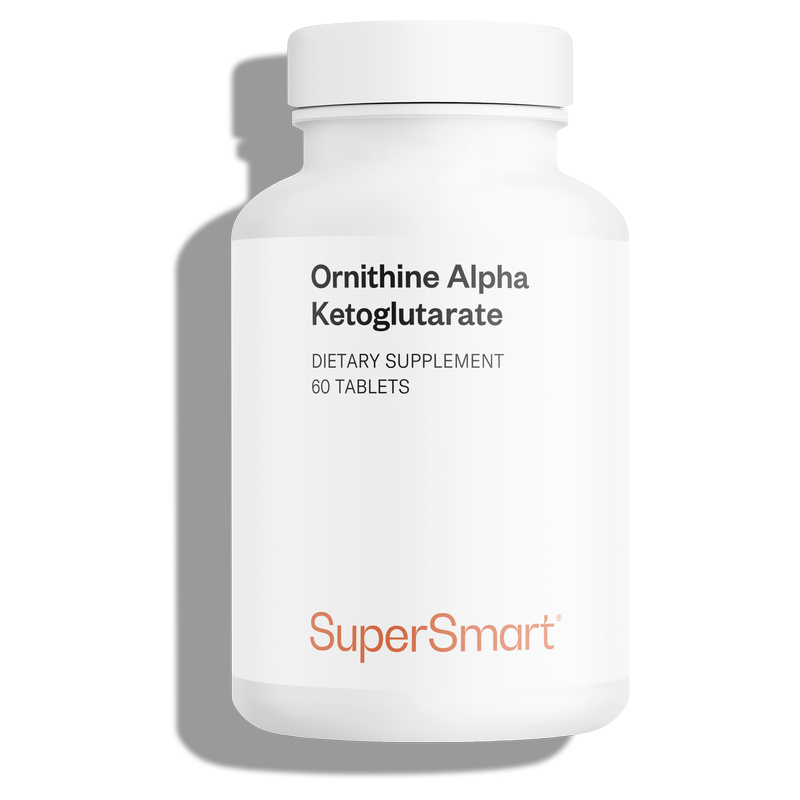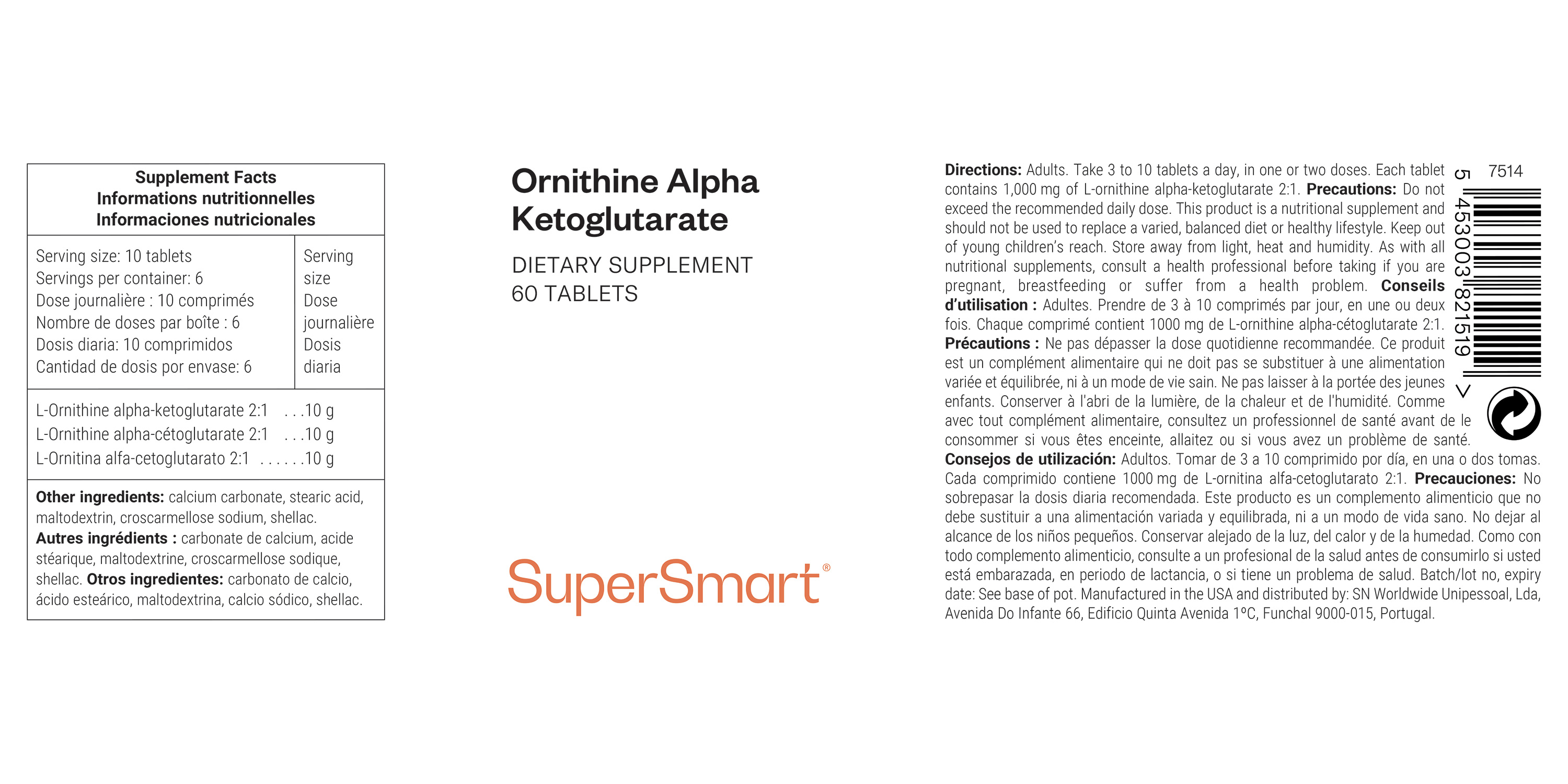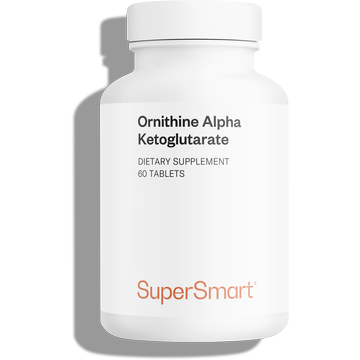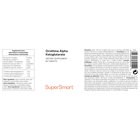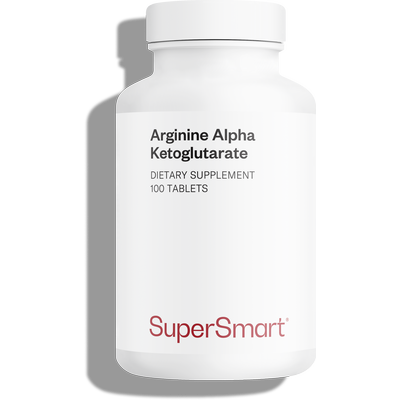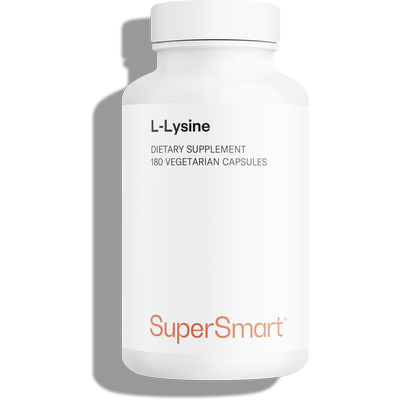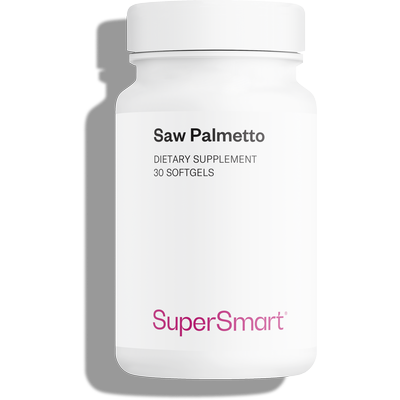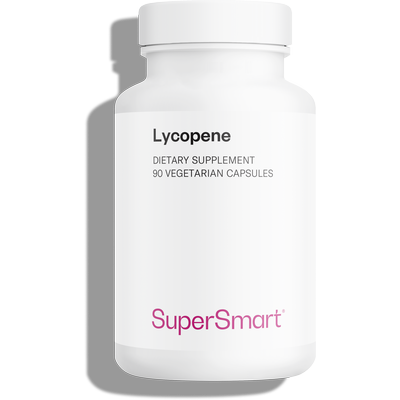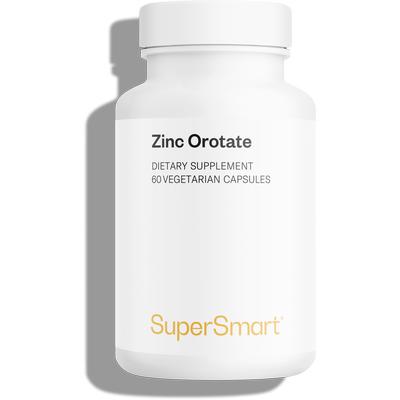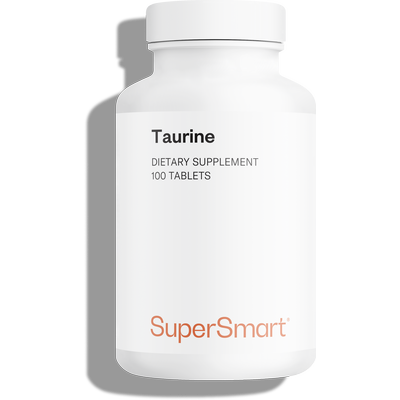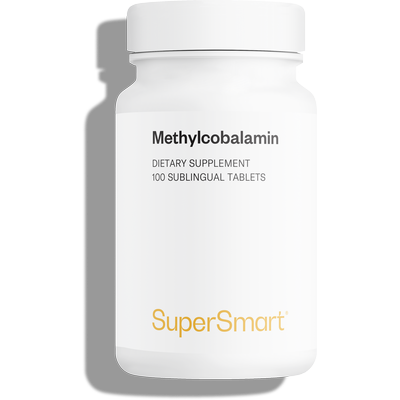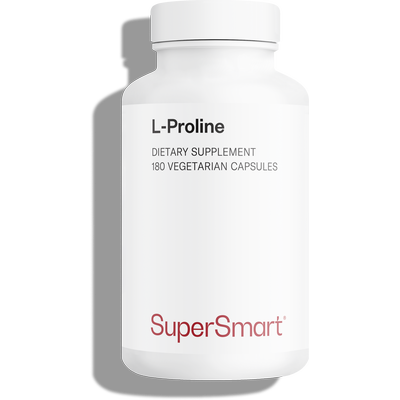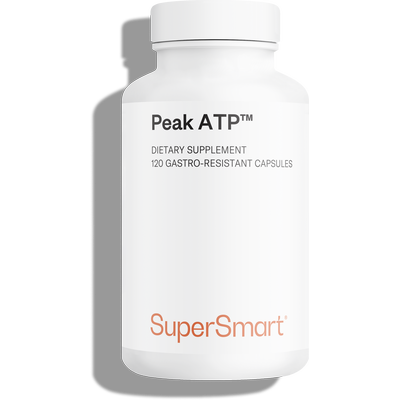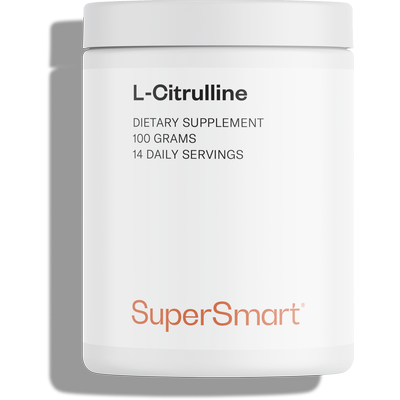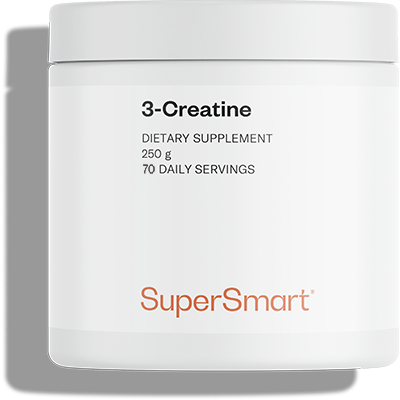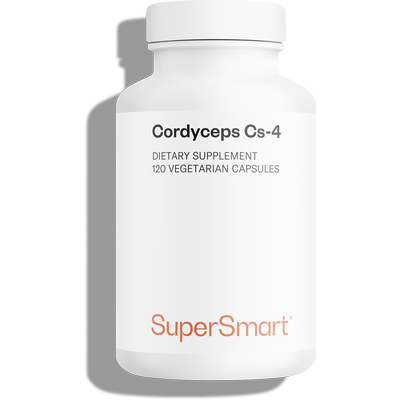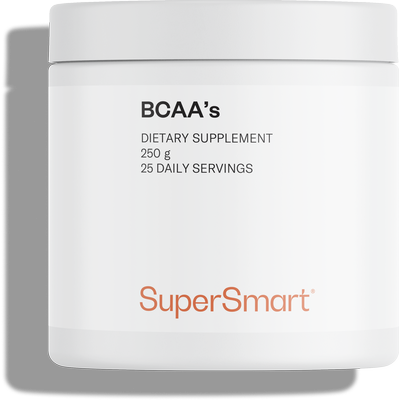Complete your selection
Ornithine Alpha Ketoglutarate (OKG) is a modulating dietary supplement combining ornithine with α-Ketoglutaric acid. Around a hundred in vitro and in vivo studies conducted over the last decade have brought a greater understanding of some of its mechanisms of action, at a metabolic crossroads involving the Krebs and urea cycles.
What exactly is ornithine alpha ketoglutarate (OKG)?
Ornithine alpha ketoglutarate (OKG) is a salt composed of one molecule of ketoglutarate and two of ornithine. It is a powerful nutritional modulator(1-4).
Multifactorial, its mechanisms of action are related to the normalisation of secretion of hormones such as growth hormone and to the properties of its metabolites:
- Glutamine, which plays a key role in controlling protein metabolism but which has limited use as a supplement due to its low solubility.
- Proline, which has two important anabolic functions, being the precursor of hydroxyproline.
- Arginine, which has the ability to increase growth hormone secretion.
What is growth hormone ?
Growth hormone, or somatotropin, is a polypeptide hormone synthesised by the body. It acts via effectors: IGF-1 and IGF-2 somatomedins, produced in the liver and chondrocytes in the growth plate.
It is secreted episodically, peaking during the hours of sleep (especially the first hours), during meals, with muscle exertion and with stress. It is at its highest during adolescence and then gradually declines throughout life until it becomes low in old age.
While its principal role is to provide cells with the energy they need for growth, it has various effects on:
- Tissues, particularly muscle tissue as it produces muscle hypertrophy and tissue hyperplasia.
- Carbohydrate metabolism as it has a blood glucose-increasing effect.
- Fat metabolism as it has a lipolytic effect and mobilises stored fats.
- Increasing the transport of amino acids in cells and their incorporation into proteins.
- Stimulating protein synthesis.
Several situations can lead to a deficit in growth hormone:
- Normal ageing.
- Sarcopenia.
- Malnutrition, especially zinc deficiency.
- Chronic inflammatory diseases.
- Nitrogen catabolism caused by the demands of strenuous exercise.
- Excess weight, especially obesity.
What is in Ornithine Alpha Ketoglutarate (OKG)
Any questions?
Our team of nutrition experts and scientists has the answers.
Sarcopenia is defined as the age-related loss of muscle mass and function (5). There is a cumulative decline in muscle mass of almost 40% between the ages of 20 and 80 (6). This has an impact on physical performance, fostering problems with walking, and is a factor in fragility in the elderly (bone demineralisation, in particular) (7).
We recommend taking 3-10 tablets of OKG a day, in one or two doses, or as advised by your therapist.
At the same time, we’d also advise:
- prioritising resistance training(8) over endurance exercise to counter sarcopenia, under the supervision of a health professional. While endurance exercise remains important for health, it is not sufficient to combat the deterioration in muscle performance and the risk of sarcopenia.
- Ensuring an intake of at least 1g-1.5g of protein per kg of body weight, by consuming foods rich in protein, preferably in the first half of the day for maximum effect on muscle protein synthesis.
december 11 2025
Parfaitement satisfait
Perfectly satisfied
 see the translation
Translated by SuperSmart - see the original
see the translation
Translated by SuperSmart - see the original
november 27 2025
Produto da minha inteira confiança
Product of my complete trust
 see the translation
Translated by SuperSmart - see the original
see the translation
Translated by SuperSmart - see the original
october 13 2025
complément qui me donne beaucoup d'énergie et qui favorise un bon sommeil , pour moi probablement le meilleur complément alimentaire que j'ai pris jusqu'a présent
supplement that gives me a lot of energy and promotes good sleep, for me probably the best dietary supplement I have taken so far
 see the translation
Translated by SuperSmart - see the original
see the translation
Translated by SuperSmart - see the original
july 31 2018
Bon rapport qualité - prix
Good value for money
 see the translation
Translated by SuperSmart - see the original
see the translation
Translated by SuperSmart - see the original
Need help?
You may also like

